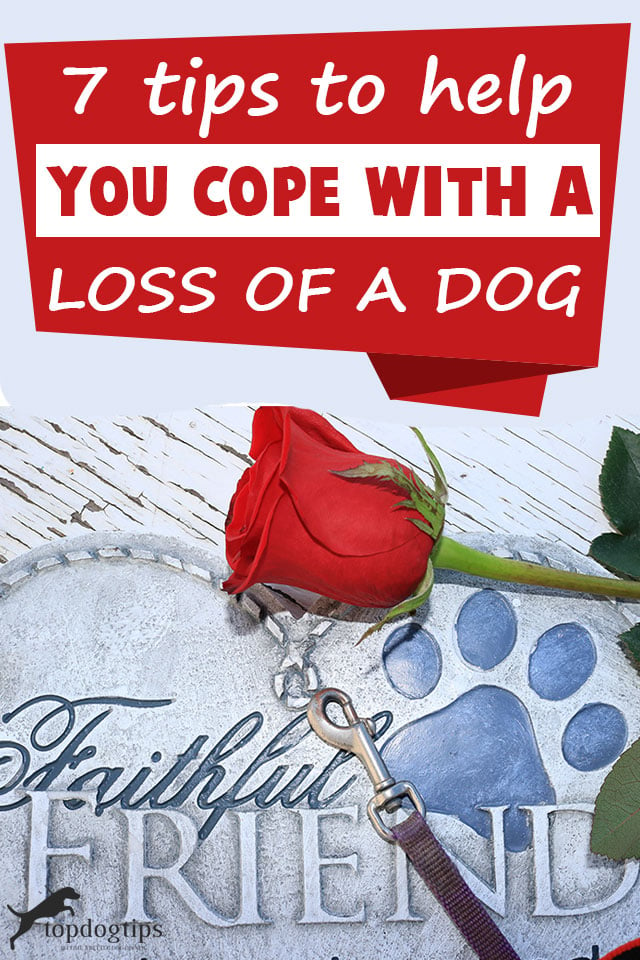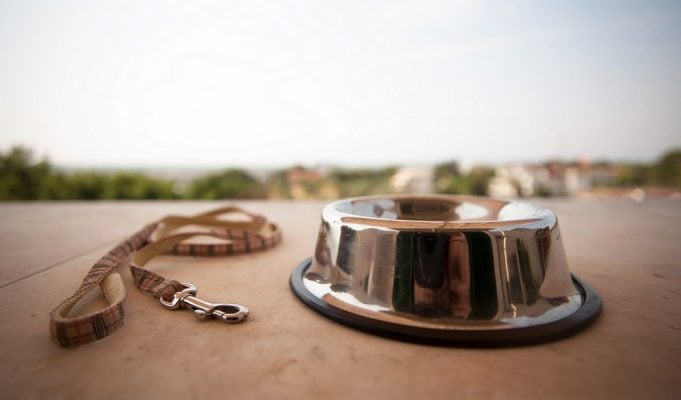Adopting a dog changes your life forever. Over the course of your relationship together, the dog will leave paw prints all over your heart. You will make memories with him, and he will be there for you at times when you feel like no one else is, which is why the last days are always extremely hard.
Table of Contents
Our dogs are family members, and seeing them getting closer to the Rainbow Bridge can be devastating for a pet owner. Like all the ones we love, it's never easy saying goodbye to our canine companions. Sometimes it feels impossible to cope with the loss.
Talk to other pet parents who have been through this. Leaning on someone who understands what you're going through can make a world of difference. Grief is a long process, so don't expect to feel better after only a few days. Everyone deals with grief differently, but it's likely that you'll be feeling the pain of your loss for a long time.
RELATED: Checklist for When to Put Your Dog Down
7 Tips to Help You Cope with a Loss of a Dog
1. Do What Feels Right
When a pet passes away, there is no “right way” to grieve. As I said, everyone deals with grief differently. Just because a friend or family member was able to adopt a new pet within days of losing their previous dog doesn't mean you'll feel comfortable enough to do the same.
Taking the time to properly mourn your loss and heal from it is the best thing you can do. If you try to fill the hole in your heart with a new pet too quickly it may reduce your ability to bond with your new fur baby. As this article from HelpGuide.org explains, everyone has a different grieving process, and you need to do what feels right for you.
Behavioral responses are widely varied and may include wanting to sleep with the departed companion’s toys or blankets, avoiding sleeping in the bed you shared with your pet, being unable to remove his possessions, continuing a routine as if your companion were still alive, a compulsion to memorialize your pet, or withdrawing from those who do not support your grief (or even those who do).
2. If You're Feeling Alone…
What you need to realize about your grief is that you don't have to deal with it alone. Hopefully, you have a support system that will help you through this trying time. If you are feeling alone, The Humane Society has some great tips.
While grief is a personal experience, you need not face your loss alone. Many forms of support are available, including pet-bereavement counseling services, pet-loss support hotlines, local or online pet-bereavement groups, books, videos, and magazine articles.
3. It's Okay to Feel This Way
Many people who experience the death of a pet don't understand why their emotions seem so scattered in the days and weeks following the tragedy. Of course you'll be overcome with sadness, but you may also feel guilty or angry. It's okay to feel this way.
Pet-loss.net explains the emotions that you may feel and why it's okay to feel this way. They also do a great job discussing why some of these feelings are unnecessary and may even make your grieving process more difficult. The key is to be honest with yourself and work through these emotions instead of bottling them up inside because you are ashamed or embarrassed.
Different people experience grief in different ways. Besides your sorrow and loss, you may also experience the following emotions. Guilt may occur if you feel responsible for your pet's death-the “if only I had been more careful” syndrome. It is pointless and often erroneous to burden yourself with guilt for the accident or illness that claimed your pet's life, and only makes it more difficult to resolve your grief.
4. Honor Your Dog
Dealing with your emotions is only the first step. You need to understand your emotions and reach out for the help that you need to cope with your loss. It may also help you to create some type of legacy for your beloved dog.
Many pet owners have funerals for their dogs, some plant gardens to honor their canine companion's memory and others find unique ways to celebrate the life of their pet. HelpGuide.org explains how creating a legacy to honor your pet may be a huge step in helping you to grieve his loss.
Preparing a memorial, planting a tree in memory of your pet, compiling a photo album or scrapbook, or otherwise sharing the memories you enjoyed with your pet, can create a legacy to celebrate the life of your animal companion. Remembering the fun and love you shared with your pet can help you to eventually move on.
5. Explain the Loss to Your Kids
Losing a pet is hard enough, but having to explain the situation to children can make it feel so much more painful. Not only do you have to feel the pain of the loss yourself, you also empathize with your children and end up feeling bad because of their pain as well. Nonetheless, as parents, it is our job to try to explain a dog passing away to our children in the family.
Children eight and older generally understand the permanence of death. Sometime the loss of a pet triggers a concern about the possible death of their parents. They may become curious about death and its implications and you should be ready to engage them in frank and honest discussions about the subject. These children will experience many of the stages of grief that you experience.
6. Talk to Your Vet
If your pet passes of natural causes or dies suddenly without warning, it's certainly going to be hard to cope with. However, if you are in a situation where your dog needs to be euthanized, it can make things much worse. Even though it is necessary, this can be a brutal choice to make.
Although I can't give you any advice that will make you feel better, what I can do is tell you that your veterinarian will know best in this situation. He or she will give you the information that you need to make the best decision for your dog, and you need to trust and understand that although it is very painful for you, it may be the best option for your suffering pet.
Sometimes your vet may recommend taking your pet home and spending some more time with him. Other times it may be best to euthanize him immediately to keep him from suffering. Either way, what it comes down to is your dog's quality of life. Your veterinarian will help you make an objective decision based on your dog's current condition.
7. Your Grief Won't Last Forever
I promise, it will get better. I can't tell you how long it will take, but it will get better. Each day will get a little easier after a while and you'll soon start having more good days than bad days. As AVMA explains in this blog post, you will eventually be able to except your pet's death and move on.
Eventually, you will come to terms with your feelings. You begin to accept your pet's death. Resolution has occurred when you can remember your pet and your time with them without feeling the intense grief and emotional pain you previously felt.
Acceptance and resolution are normal and do not mean that you no longer feel a sense of loss, just that you have come to terms with the fact that your pet has died. Even when you have reached resolution and acceptance, feelings of anger, denial, guilt, and depression may reappear. If this does happen, these feelings will usually be less intense, and with time they will be replaced with fond memories.
READ NEXT: Grief Over Pet Loss – Tragedy That Can Hurt More than Human Loss
Want To Share This?















